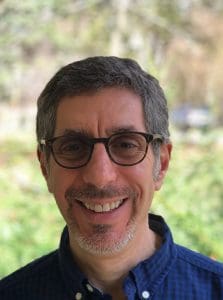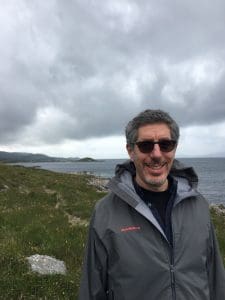Harmonizing Interests to Confront Climate Change. Member Spotlight: Joseph Siegel
“Sometimes, the enormity and complexity of the issue of climate changes feels paralyzing – however, it is useful to keep the perspective that this makes it an equally enormous opportunity for action.”
As a senior attorney, trained mediator, and private consultant, specializing in climate change and environmental conflict resolution, Joseph Siegel has no shortage of expertise. For over 30 years, he has dedicated his career towards analyzing and addressing this ever-pertinent global dilemma. He is also an Environmental Collaboration and Conflict Resolution Specialist with the U.S. Environmental Protection Agency’s (EPA) Office of Regional Counsel in New York and teaches a variety of related courses, such as Environmental Dispute Resolution and Adaptation to Climate Change, at Haub School of Law at Pace University as well as Hofstra Law School.
From the Beginning
 “I have always had a love for the environment and an interest in environmental issues,” Joseph said. As an undergraduate at Wesleyan, he began transforming this interest into a career focus. “I was in one of the country’s first ‘Science, Technology, and Society’ programs,” which, he explained, addressed the complex interactions between the natural environment, technology, and the social world, and served as his initial inspiration to pursue environmental law.
“I have always had a love for the environment and an interest in environmental issues,” Joseph said. As an undergraduate at Wesleyan, he began transforming this interest into a career focus. “I was in one of the country’s first ‘Science, Technology, and Society’ programs,” which, he explained, addressed the complex interactions between the natural environment, technology, and the social world, and served as his initial inspiration to pursue environmental law.
Joseph went on to attend Hofstra University Law School where he gravitated toward the one course in environmental law that was offered back in the early 1980s. Following graduation, he spent a few years developing his career in direct service of the community as a lawyer with The Legal Aid Society. It was not long, however, until he felt compelled to take a deep dive into his environmental passions. When an opportunity within the EPA came to his attention, Joseph recalled, “I made the switch and loved it. I have been there for 33 years!”
Environmental Law and Mediation
The benefits of mediation in the legal space were clear to Joseph in his first years as a lawyer. “I was drawn to mediation because I found that litigation was not always the most effective strategy for solving systemic problems.” Although outside the traditional approach at the time, Joseph became a certified mediator in order to help resolve some of the issues he observed.
“I trained, began volunteering for the Westchester Mediation Center, and worked in family mediation, small claims courts, etc.” Joseph used these opportunities to develop expertise before formally introducing this practice to his environmental legal work. Becoming a mediator taught him how to move a conversation forward in a productive manner; “… to de-escalate conflict in the moment and to bring about a common understanding among diverse parties.”

In his current practice and teaching on climate change, Joseph finds that his law students and the many stakeholders he works with, feel passionate about taking action “… which often creates potential for conflict between parties who otherwise have a common goal.” Mediation gives him the capacity to engage with these dynamics. “Working with people who want to take action in the face of the climate crisis but can’t seem to do it effectively without assitance, is motivating. Being able to harmonize interests is the best reward,” Joseph said.
As a seasoned conflict resolution specialist with the EPA, Joseph focuses on climate change and air pollution law and policy as well as the mediation of large environmental disputes. While litigation was a significant part of his job earlier in his career, he now frequently acts as a neutral facilitator to help stakeholders arrive at sustainable solutions. Among many accomplishments, Joseph has served as a mediator and facilitator, both within the Agency and as a consultant outside the Agency, on matters including green building codes, renewable energy, resilient communities, post-disaster sustainable development, and climate science, among others.
Addressing Climate Change with MBBI
As a member and representative of MBBI’s Climate Change Policy Project, Joseph recently attended one of the United Nations annual climate summits. He described the experience as “… a big opportunity for MBBI to demonstrate how mediation can address this global problem in a cohesive and productive manner.” In the years ahead, Joseph hopes that mediation will continue to be used more readily as a tool for state and local governments as well as NGOs and businesses around the world to refine their goals and improve their climate action agendas. “MBBI raises awareness for this.”
Article by Juliana Heffern, MBBI Writer
